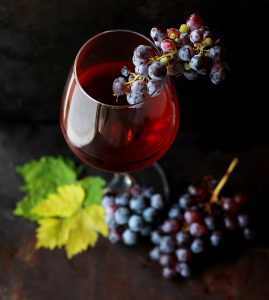It was common for ancient writers to try and equate the gods of one culture to the gods of the audience to which they wrote. Herodotus, for instance, repeatedly equated several Egyptian gods with Greek counterparts. Neith is equated to Athena, Mendes to Pan, Horus to Apollo, and on and on.
This practice continued to Plutarch, a Greek philosopher and essayist living in the first century, usually known for his biographies of famous Greeks and Romans (compiled in the modern day as Lives). In one of his writings, Plutarch muses on the God of the Jews, and he attempts to draw comparisons with one of the Greek gods.
 Many Christians today, if forced to make a choice, would see similarities with Apollo, a representation of reason and order. And yet, as Peter Leithart points out in his Blessed are the Hungry, Plutarch draws a connection to Dionysus. Dionysus, the god of revelry and disorder, of wine and drama, could be seen as the opposite of Apollo.
Many Christians today, if forced to make a choice, would see similarities with Apollo, a representation of reason and order. And yet, as Peter Leithart points out in his Blessed are the Hungry, Plutarch draws a connection to Dionysus. Dionysus, the god of revelry and disorder, of wine and drama, could be seen as the opposite of Apollo.
His reasons? The Sabbath and its invitation to drink and enjoy wine.
Christians know that Dionysus is no god at all, and whatever reality he represents is, at best, just a shadow of the light of the Creator, and at worst, a corruption and twisting of true reality. But Christians should also take seriously that reality, and realize that the God of Scripture is the true God of Wine.
He is not a god who is remote, but the God who came down to dwell with us, to bump elbows with a people who wielded nothing but rough, wild, and pointed elbows. We are tempted to think of Him as aloof and harsh, but His first miracle was to create a bunch of wine for a wedding party. And that should not surprise us.
In the Law He commanded feasts more the fasts, and many times the drinking of wine and strong drink was a requirement. The promise of the coming new covenant was couched in terms of a feast with rich food and well-aged wine (Is. 25:6). Psalm 104 says that God gave wine to gladden the heart of man.
The gospel invitation is partly an invitation to learn of God, but that learning takes place in the context of feasting and celebration, dining in the midst of our enemies while we raise a toast to our victorious King.
Dionysus is small potatoes compared to the true God of wine.
Photo by Roberta Sorge on Unsplash